
support@yorubalibrary.com
+2348073529208, 07038599574

Yoruba culture is known for its rich traditions and elaborate festivals that celebrate various aspects of life, from religion to agriculture. These festivals are not only a means of preserving cultural heritage but also a time for community bonding and reflection. On this website today, we are going to explore some of the key Yoruba festivals and celebrations.
Eyo Festival
The Eyo Festival, is one of the most famous Yoruba festivals. Held in Lagos, this festival honors the spirits of the ancestors and is a significant cultural event. 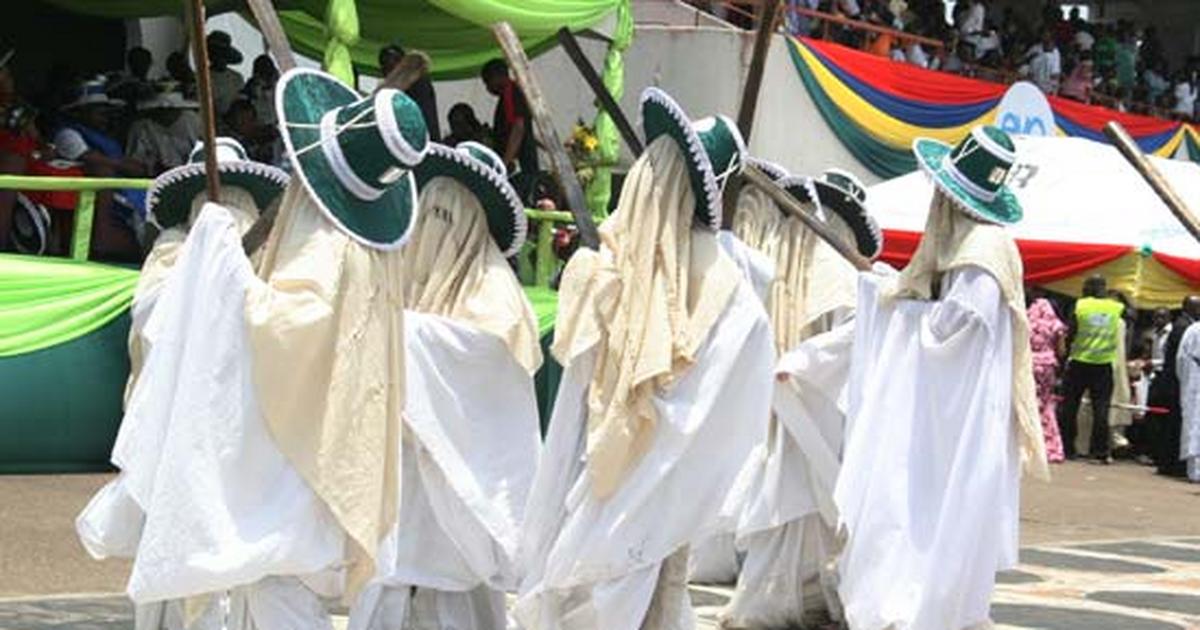
Participants, called Eyo, dress in white robes and cover their faces with white masks. They carry staff symbolizing peace. The festival involves processions, dances, and music, transforming Lagos into a lively and colorful spectacle.
Osun-Osogbo Festival
The Osun-Osogbo Festival is a two-week-long event held annually in Osogbo, dedicated to the river goddess Osun. It is a UNESCO-listed cultural heritage event, drawing thousands of worshippers and tourists. 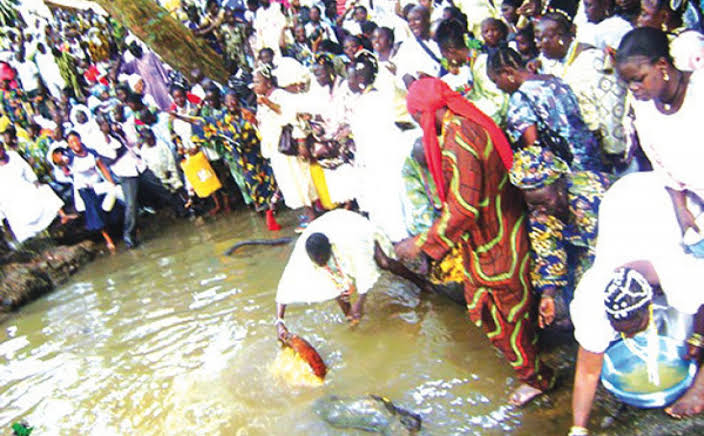
The festival includes a series of rituals, offerings, and cultural displays, culminating in a grand procession to the sacred Osun Grove. Devotees seek blessings, fertility, and protection from the goddess, making this festival deeply spiritual and culturally significant.
Olojo Festival
The Olojo Festival takes place in Ile-Ife, the cradle of Yoruba civilization. This festival celebrates the creation of the world and honors Ogun, the god of iron and war. 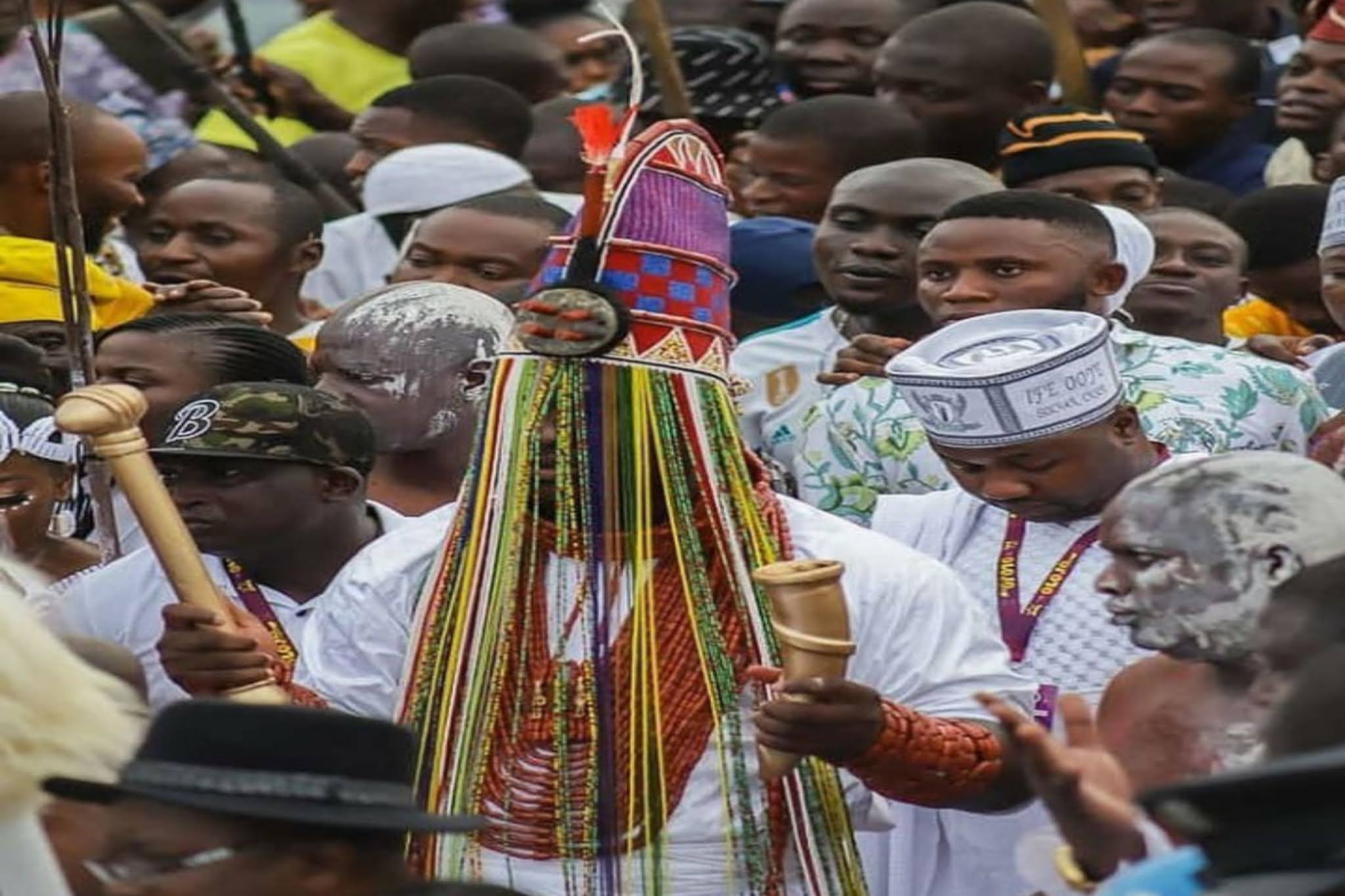
The Ooni of Ife, the spiritual leader of the Yoruba, plays a central role in the festivities, wearing the sacred crown. The festival includes traditional rites, prayers, and a grand parade, emphasizing the historical and spiritual importance of Ile-Ife.
Sango Festival
The Sango Festival is dedicated to Sango, the god of thunder and lightning. It is majorly held in Oyo, the ancestral home of Sango, this festival celebrates his legendary exploits and divine powers. 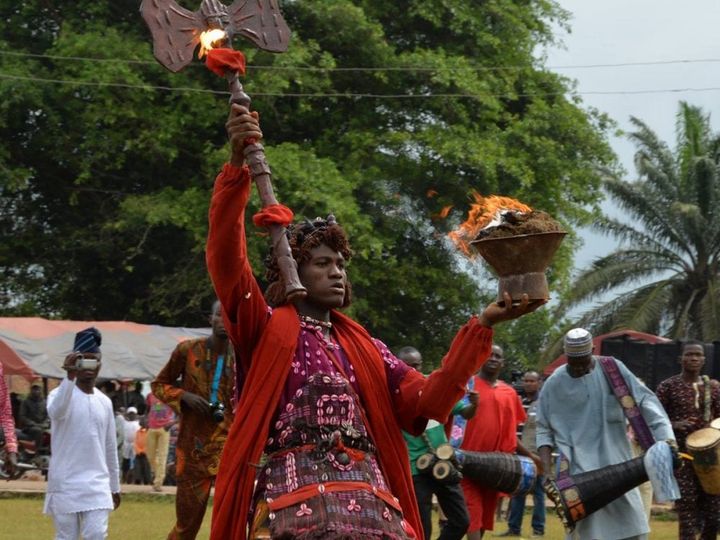
Activities include drumming, dancing, and theatrical performances that reenact Sango's feats. The festival also features rituals and sacrifices, aiming to invoke Sango's blessings and protection for the community.
Egungun Festival
The Egungun Festival is a masquerade festival that honors the ancestors and seeks their guidance and blessings. Celebrated across various Yoruba towns, the festival features elaborate costumes and masks that represent different ancestors. 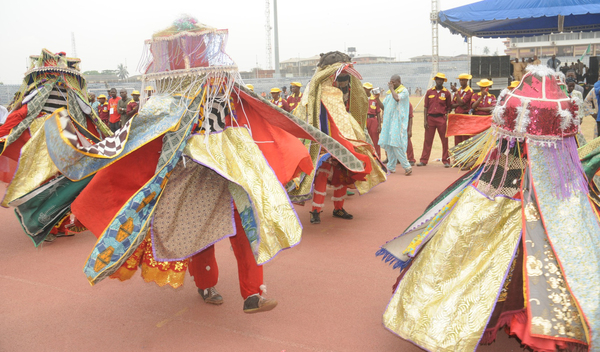
Performers, believed to be possessed by the spirits of the ancestors, dance and parade through the streets, providing entertainment and spiritual cleansing. The Egungun Festival reinforces the Yoruba belief in the continuity of life and the importance of ancestral connections.
Gelede Festival
The Gelede Festival is held to celebrate and honor women, particularly elderly women and mothers. This festival, celebrated by the Yoruba people in parts of Nigeria and Benin, combines dance, music, and masquerade performances. 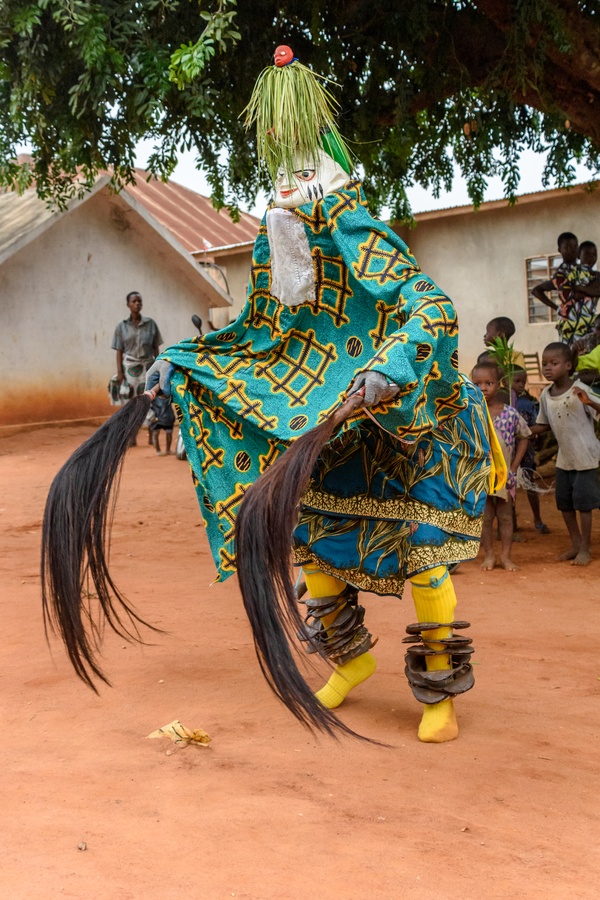
The Gelede masks are intricately designed and worn by male dancers who perform in pairs, symbolizing male and female roles in society. The festival underscores the Yoruba respect for women and their crucial role in maintaining social harmony and continuity.
New Yam Festival
The New Yam Festival, known as Ijesu, marks the beginning of the yam harvest season. Yams are a staple food in Yoruba culture, and the festival is a time to give thanks for a bountiful harvest. 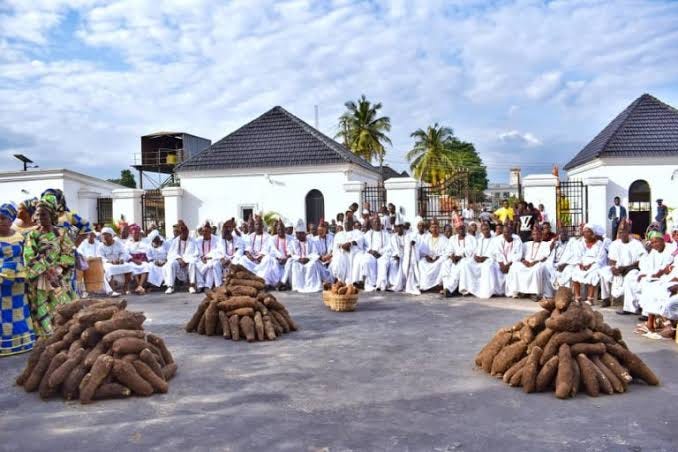
Celebrations include feasting on yam dishes, cultural performances, and communal activities. The New Yam Festival reinforces the significance of agriculture and gratitude in Yoruba life.
Conclusion
Yoruba festivals and celebrations are integral to their cultural identity, serving as a bridge between the past and the present. These festivals are not only occasions for communal enjoyment but also for preserving traditions, seeking spiritual fulfillment, and reinforcing social bonds. By understanding and participating in these celebrations, one gains a deeper appreciation of Yoruba culture and its enduring legacy

Learn about the Yoruba concept of Ìwà Pẹ̀lẹ́ (good…

Learn special praises for Divine Being and Creator…